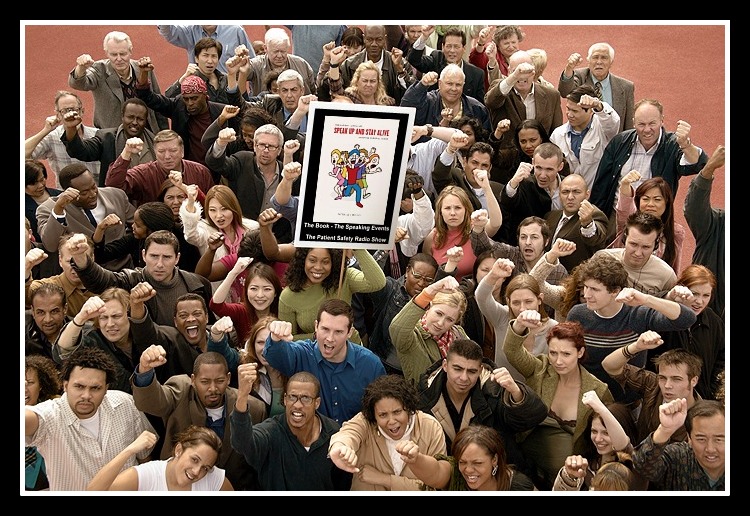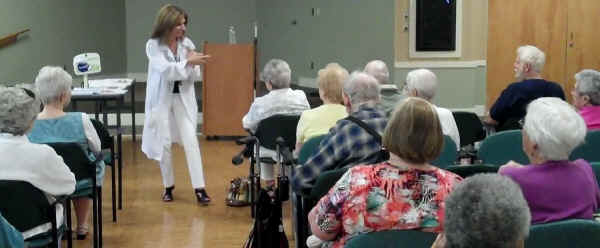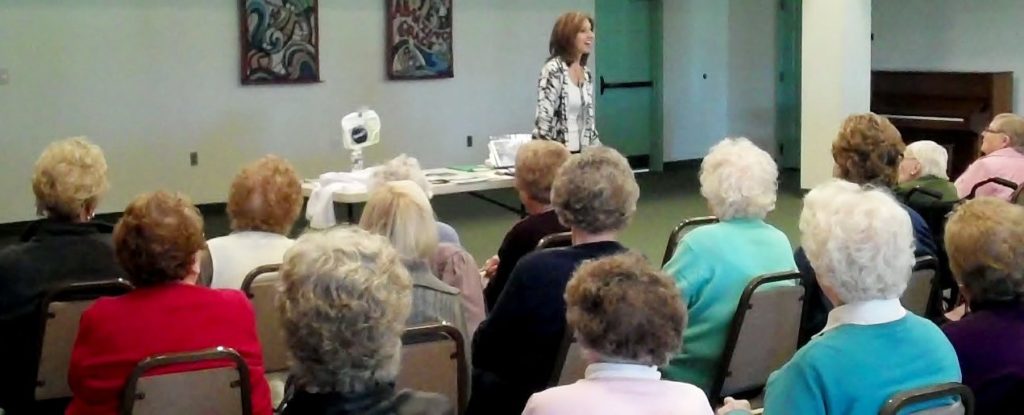Invite Pat to speak to your senior group with this special and important topic. She’s fun, fast-paced and no one falls asleep on her watch!
The Senior Scenario
The elderly are at a great risk for hospital-induced conditions. Many issues can complicate recovery or set off an entirely new chain reaction of medical issues.
Many of the following hazards are covered during our live one hour (or less) presentation.
Adverse Drug Reactions
Seniors see numerous physicians, use more prescription drugs, and fill their prescriptions at different pharmacies increasing the chance of a risky combination. Because the average senior receives 25 prescriptions each year, they are four times more likely to be hospitalized due to an adverse drug reaction.
- Certain classes of drugs are known to be major sources of adverse drug reactions? What questions should you ask?
- Drug- or hospital-induced delirium, sometimes called ICU psychosis, can be caused by the combination of drugs, sleep deprivation, pain, dehydration, and the disturbance of the body’s natural rhythm. According to estimates, a whopping 80 percent of elderly intensive care patients develop delirium. There are actions you can take to avoid this.
Sundowning – a disruption of the body’s “internal clock” that occurs during the late afternoon and involves unusually agitated or disoriented behavior. What can you do to help with this?
Pressure Sores – What causes them, what can you do to avoid them and what can you do to help heal them?
Hospital Readmission – Older adults have a high hospital readmission rate. This is largely because the discharge process is fragmented and flawed to begin with, and many seniors have elderly spouses, friends, or perhaps no one to help decipher and fulfill the cryptic discharge instructions. Medical information can be misunderstood, prescriptions not filled, and in-home plans of action not followed. There are some easy steps to follow to help ensure a smooth transition.
- The Home Environment and Activities of Daily Living – Most readmissions are linked to lack of follow-up care. Many older patients need help with the activities of daily living after a hospital stay. For those who live alone, the rate for readmission doubles from those who have help at home. Will your home environment accommodate your post-hospital needs? Do you need any medical equipment; oxygen, a walker, a wheelchair, or a special bed? If so, how will you get these items? Does someone need to stay with you at home? When and for how long? Do you have the people in place, or do you need help with this?
And more …
Newly Acquired Functional Limitations
Falls
Pre-surgical Testing, Consultations and Risk Assessments
Continence Issues
Malnutrition/Dehydration
Difficulty with pain or sleep
End-of-life decision making and conversations
Advance Directives
Hospitalized seniors have special needs that transcend the scope of pure medicine. The elderly need extra attention when faced with a hospital stay. Our Senior Scenario presentation highlights many of these concerns and offers practical and simple ways to stay safe, empowered and healthy.
The presentation is lively and life saving! Visit the Speaking Events page for audience testimonials and pictures.
Contact Pat Rullo
440-725-5462
pat@speakupandstayalive.com



